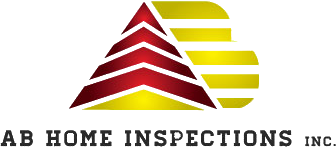Finding Reliable Home Inspectors in Your Area
Finding Reliable Home Inspectors in Your Area
Buying a home is one of the most significant investments you’ll ever make. Whether you’re a first-time homebuyer or looking to upgrade, ensuring the property is in good condition is crucial. This is where hiring a reliable home inspector comes into play. With so many choices available, how do you find the best home inspectors near you?

A B Home Inspections want to help!
In this guide, we’ll walk you through the process of finding dependable home inspectors in your area. We’ll also discuss what to expect during a home inspection and why it’s an essential step in the home-buying process.
Why You Need a Home Inspector
Before diving into how to find home inspectors, it’s important to understand why their role is vital.
Uncover Hidden Issues
A home inspector’s job is to evaluate the property and identify any potential issues. They check everything from the roof to the foundation, plumbing, and electrical systems. This thorough inspection helps uncover hidden problems that aren’t visible during a regular walk-through.
Save Money in the Long Run
Identifying issues early can save you thousands of dollars in future repairs. It’s better to know about a leaky roof or faulty wiring before you finalize the purchase rather than deal with costly surprises later.
Gain Negotiating Power
With a detailed home inspection report, you have the information needed to negotiate repairs or lower the purchase price. This knowledge can provide significant leverage during the buying process.
How to Find Home Inspectors Near You
Now that you know why hiring a home inspector is crucial, let’s look at how to find reputable professionals in your area.
Start with Online Research
A good starting point is searching for “home inspectors near me” online. This will give you a list of local home inspection companies and independent inspectors.
Check Reviews and Ratings
Once you have a list, check online reviews and ratings. Websites like Google, Yelp, and Angie’s List provide customer feedback on their experiences with different inspectors. Pay attention to both positive and negative reviews to get a balanced view.
Ask for Recommendations
Another way to find reliable home inspectors is by asking friends, family, or colleagues for recommendations. They might have recently purchased a home and can share their experiences with you.
Verify Credentials
It’s essential to verify the credentials of any home inspector you’re considering. Check if they’re licensed and certified by reputable organizations such as the American Society of Home Inspectors (ASHI) or the International Association of Certified Home Inspectors (InterNACHI). These certifications ensure that the inspector adheres to industry standards.
Interview Potential Inspectors
Before making a decision, take the time to interview potential inspectors. Ask about their experience, the scope of their inspections, and any specialties they might have. This is also a good opportunity to ask for a sample inspection report to see how detailed their findings are.
Compare Costs
Home inspection costs can vary, so it’s wise to get quotes from several inspectors. While it’s tempting to choose the cheapest option, remember that you often get what you pay for. A more experienced inspector might charge more, but their expertise can be invaluable.
What to Expect During a Home Inspection
Knowing what happens during a home inspection can help you feel more prepared for the process.
Length of the Inspection
Home inspections typically last between two to four hours, depending on the size of the property. Larger homes or older properties might take longer due to more areas needing examination.
Areas Covered
A comprehensive home inspection covers various areas of the property, including:
- Roof and Attic: Checking for leaks, proper insulation, and ventilation.
- Foundation and Structure: Ensuring the foundation is solid and there are no structural issues.
- Plumbing: Looking for leaks, water pressure issues, and proper drainage.
- Electrical Systems: Checking wiring, circuit breakers, and outlets for safety.
- Heating and Cooling Systems: Evaluating the condition and efficiency of HVAC systems.
- Interior and Exterior: Inspecting walls, ceilings, floors, windows, and doors for any damage.
Attending the Inspection
It’s highly recommended to attend the inspection if possible. This allows you to ask questions and get a better understanding of the property’s condition. The inspector can also point out issues in real-time, providing valuable insights.
After the Inspection: Understanding the Report
After the inspection, you’ll receive a detailed report outlining the inspector’s findings. Here’s how to interpret it:
Review the Summary
The summary section highlights the most significant issues found during the inspection. Focus on these areas first, as they may require immediate attention.
Understand the Details
The report will have detailed information about each area inspected, including photos and notes. Take the time to go through these details to fully understand the property’s condition.
Discuss with Your Real Estate Agent
Share the inspection report with your real estate agent. They can help you decide on the next steps, whether that’s negotiating repairs, requesting a price reduction, or moving forward with the purchase.
Making the Right Choice
Finding reliable home inspectors is an essential part of the home-buying process. By doing thorough research, checking credentials, and understanding what to expect during the inspection, you can make an informed decision.
Remember, a home inspection is not just a formality. It’s a vital step in ensuring your new home is safe, sound, and free from hidden problems that could affect your investment in the long run. By choosing the best home inspectors near you, you’re taking a crucial step toward a successful home purchase.
